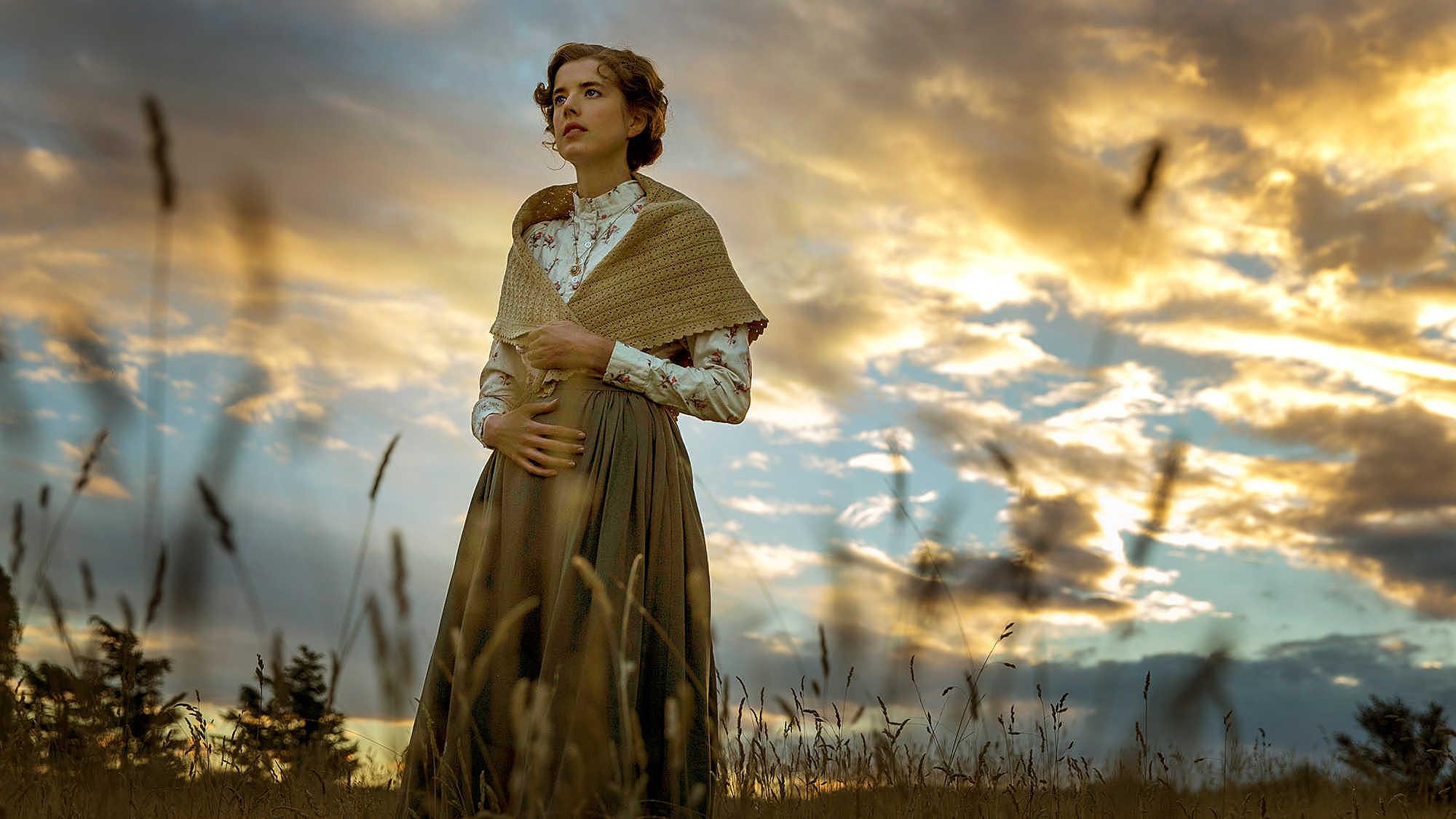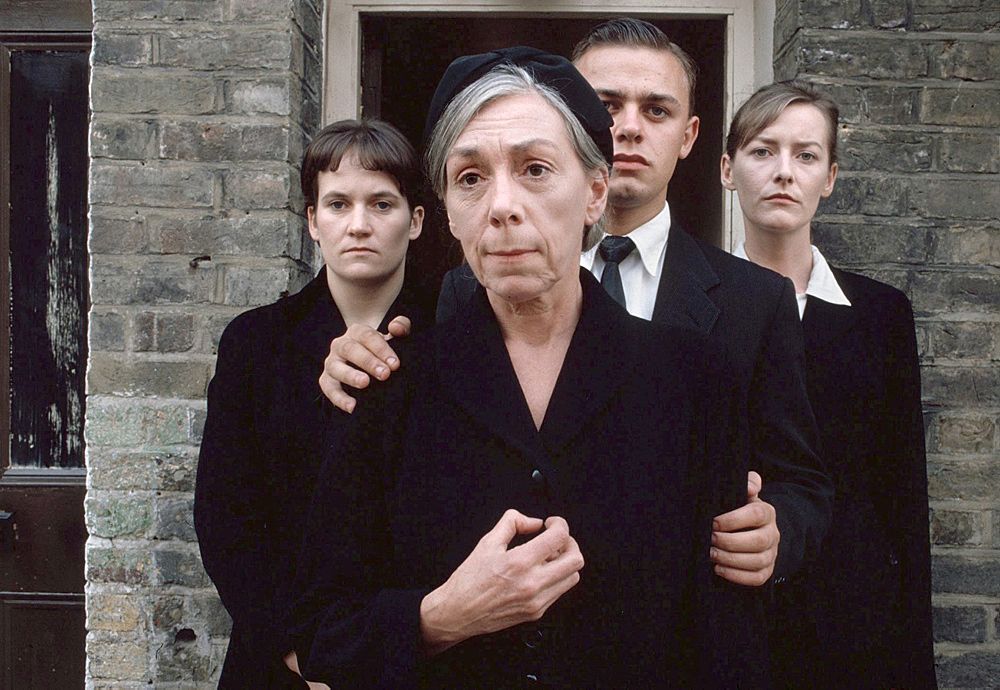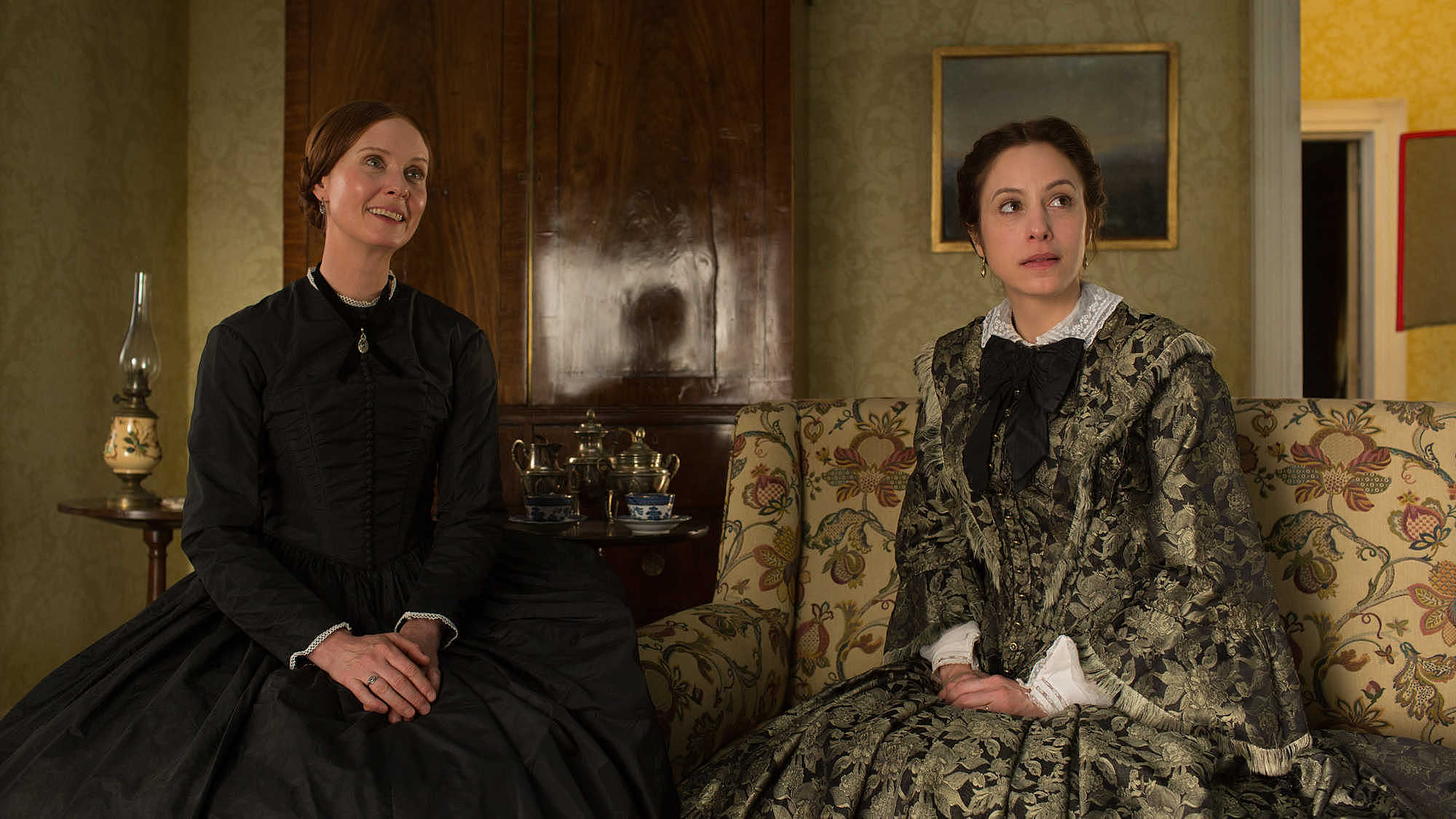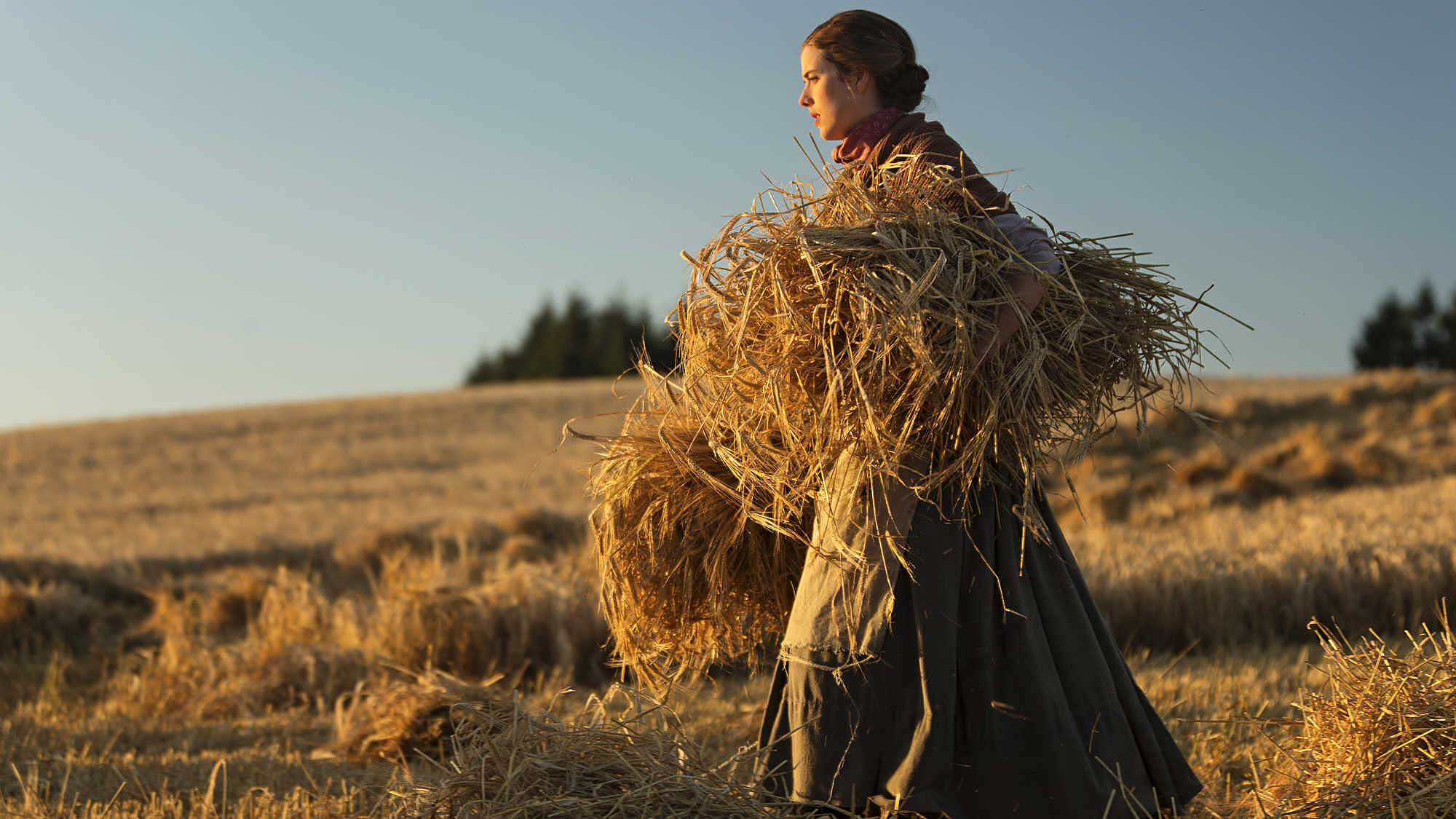I Could Not Stop For Death: The Poetry of Terence Davies
Brannavan Gnanalingam talks to Terence Davies, director of Sunset Song and A Quiet Passion, about the struggles and the euphoria of creation.
Brannavan Gnanalingam talks to Terence Davies, director of Sunset Song and A Quiet Passion, about the struggles and the euphoria of creation.
Terence Davies alternates between despair and passion when he talks. You can hear that see the swing in his mood when he talks about financing films through the UK Film Council, the now-defunct British equivalent of the New Zealand Film Commission. Davies has been acclaimed over the course of his forty year career for his majestic tales about ‘ordinary’ people, but has struggled to get institutional support for his projects; he bluntly describes the Council, one of the sources of that institutional resistance, as “a complete waste of time”.
But he waxes lyrical about its replacement, the BFI Film Fund. Run by the British Film Institute, the Film Fund has been a significant player in the making of his latest films, Sunset Song and A Quiet Passion, both of which are presented in this year’s New Zealand International Film Festival. He describes the Fund as being a “wonderful renaissance,” particularly for Davies himself, who, at seventy, may otherwise been seen as at the twilight of his career.
For someone with such a celebrated and lengthy career, Davies fell into filmmaking quite by accident. Born in Liverpool, Davies had a difficult childhood, living with an abusive father and having to come to terms with his sexuality and (lack of) Catholic faith in a deeply conservative community. He dropped out of school early and worked in an accounts department.
Davies found an outlet for his personal struggles in all kinds of art: film, theatre, literature. He talks with obvious delight about the first film he saw, Singin’ in the Rain: “[It] is a wonderful introduction to film. You look at the title sequence from Singin’ in the Rain and it’s only nine cuts from eight positions. I mean, it seems to go on forever and it’s just one of those glorious moments in cinema. It’s magic.” Similarly, discovering Chekhov’s plays introduced a teenage Davies to the idea the everyday life can create great art. “All he does is tell you about ordinary things,” Davies explains. “But then something will happen and you’ll see an entire life.”
Davies left accounting in his twenties in favour of drama school. His first passion was writing; after writing the first part of what is now known as The Terence Davies Trilogy, he sent the script on a whim to the BFI Production Board, then headed by producer Mamoun Hassan. The Trilogy was a loosely autobiographical collection of three short films, released between 1976 and 1983, about a bullied and closeted schoolboy coming to terms with himself over the course of his life. Unexpectedly, Davies says, Hassan put £8,500 (“and not a penny more”) towards the film, on condition that Davies directed. “When I looked down the camera for the first time, I had no idea what I was doing,” Davies recalls. “But it was just so thrilling.”
Davies’ later output was similarly autobiographical. His 1988 feature Distant Voices, Still Lives depicts the disintegration of a post-World War working class family, their fractured family situation punctuated with music and raucous sing-alongs. Both nostalgic for a way of life that no longer existed in Thatcher’s England and a tribute to those who endured such hardship in the past, Distant Voices, Still Lives remains a critical favourite. A 2011 Time Out UK poll ranked it the 3rd greatest British film of all-time and notorious Anglophobe Jean-Luc Godard considered the film an exception to the “mediocrity” of English cinema. His 1992 follow-up, The Long Day Closes, follows a young boy who struggles with bullies, financial pressures and religious guilt, but finds salvation through music and film. That film was, and remains, similarly applauded.
Davies’ work is challenging: slow, elliptical, marked with considerable pain and darkness. “I remember when I first went to New York with the Trilogy,” Davies recalls, “a critic wrote, ‘these films make Ingmar Bergman look like Jerry Lewis.’ Which I don’t think was a compliment.”
But Davies’ work is also grounded in a sense of community and the “poetry of the ordinary”. “In an ordinary life,” Davies explains, “getting married is huge. Having a child is huge. Dying is huge.” Davies stresses those moments, but his characters are also frequently caught up in sing-alongs and dances, almost as an antidote to everything else. “Those small pleasures that you get, being with other people,” Davies continues. “Singing and dancing: those [are] things I grew up with and [I’m] still moved by them. They’re so simple but they’re direct; especially when I was growing up, everybody sang.”
This focus on “everyday” people feels like a political statement. Davies, a lifelong Labour supporter, disagrees. “I feel like I’m too emotional to be political,” he explains. “I’m interested in how people cope with the cards they’ve been given. Especially the rest of my family – my father was very violent – but my mother had a terrible life.”
“I remember when I first went to New York with the Trilogy, a critic wrote, ‘these films make Ingmar Bergman look like Jerry Lewis.’ Which I don’t think was a compliment.”
Even though that early work was critically acclaimed, Davies spent years making films with limited financial help, having to re-mortgage his house three times to keep afloat. Davies admits to getting close to despair: “There are times you want to, when you just think the struggle is too great.” But he flips back, adding to that, “If I do believe in something, I won’t give up.”
His swings between despair and passion are reflected in the narratives of his two films at the NZIFF. Sunset Song is based off the classic Scottish novel by Lewis Grassic Gibbon; A Quiet Passion is about the life of American poet Emily Dickinson. Both feature ‘ordinary’ people living through extraordinary and painful times.
Sunset Song is about Chris (Agyness Deyn), a young Scottish woman living at the start of the Twentieth Century who has to deal with, in succession, an abusive father, an abusive husband and World War One. The source novel is little known outside of Scotland, where it is commonly a text studied at school, and Davies discovered it through a BBC mini-series that adapted the novel in the early 1970s. “It’s quite difficult to read as it’s in Doric, which is a dialect in Aberdeenshire,” Davies says. “But it’s a great, great book.”
Chris’ stoicism in the face of abuse and isolation resonated with Davies. “She never became bitter, but that is moving because it’s so easy to become bitter.” Her strength in the face of adversity also reminded Davies of his mother: “She was strong without ever being hard. She was full of love. It still moves me when I think about it.”
That darkness also exists in A Quiet Passion, an intensely moving biopic that follows Dickinson (Cynthia Nixon) as she struggles with languishing in obscurity. Dickinson wrote 1,808 poems, but only eleven of them were published in her lifetime. On top of that, all eleven published poems had their punctuation altered, something that frustrated and angered Dickinson, according to Davies, “[and] quite rightly, if you ask me. When you read the poems with her punctuation, they make sense.”
“It’s not that I think she’s the greatest 19th Century American poet,” Davies says. “It’s the fact she wasn’t recognised while she was alive. That moves me more than I can say.” Davies recognises something of his own life in Dickinson, noting, “My manager said it’s my most autobiographical film, and he’s probably right.”
All that said, Davies disagrees with the notion that Dickinson’s life and lack of recognition was tragic. “I just think it’s extraordinarily unfair that her genius wasn’t recognised,” he explains. “It’s happened to so many people.” Davies points to Austrian composer Anton Bruckner, whom Davies also loves and who was similarly marginalised. “People just walked out all the time, there were more people in the orchestra than there were in the audience. So I feel that quite deeply.”
To that end, Davies didn’t want to represent Dickinson as simply a tortured artist. “I wanted her to be a proper human being,” he says, “with all of the foibles of bitterness and regret and all of that.” As Dickinson grew older, she became further confined to her room, but “she wasn’t solemn,” he stresses. “She played the piano very well. She liked to dance. She liked to bake. So I wanted all of those things in.”
In A Quiet Passion, Davies focuses on those interiors, using only firelight and oil lights to capture Dickinson’s increasingly-confined world. “That’s the only source of light they would have,” Davies explains, “[so] you’d get these pools of light, which are just lovely.” Davies and Florian Hoffmeister, his German cinematographer, discussed “a wonderful German word, arbendrot, which means “red evening”.” That also became a defining visual for the film: “Some of the evenings had to look like that.”
Davies’ films are all gorgeous to look at; like in A Quiet Passion, he endows ‘ordinary’ life with a beautiful painterly quality, directly contrasting with – and, in many ways, subverting – the downbeat realities of his subjects. Sunset Song was inspired by the 19th Century Danish painter Vilhelm Hammershøi, whom Davies describes as a “kind of northern Vermeer.” This marked a shift for Davies, who typically focuses on interiors; instead, Davies turns his camera to the outdoors, making great use of the “gloaming” time of day, the brief period between twilight and night.
Sunset Song has been met with criticism as well as praise, but Davies is disarmingly frank about his own struggles to continue to make art despite these setbacks. “It’s very demoralising when people hate what you do and when people dismiss it,” Davies says. “There have been one or two very nasty reviews of Sunset Song, and they really hurt.”
“I’ve done the best I can,” Davies says, somewhat tentatively. “Now it’s up to other people to say whether it’s good, bad, or indifferent.” In this instance, the ‘best he can’ includes fighting for 18 years to pull together sufficient funding for Sunset Song. Davies jokes that he is sustained by “stubbornness and pig-headedness.” “Quite frankly,” Davies elaborates, “by the time we finished, it was really very, very difficult financially, and you just thought, ‘I’m glad it’s finished.’”
Davies turns to his protagonist’s refusal to complain, though, and draws inspiration from that. “The one thing you’ve got to fight against is bitterness. What does bitterness do?” Davies asks. “It actually corrodes you. It doesn’t do anything except that.” Although he adds, jokingly, “It’s a difficult fight I’d have to say, because if I could strangle one of [the negative reviewers] and get away with it, that’s what I’d do.”
The critical reaction, however, has been largely positive. “It makes you forget all of the horrors of not having enough money,” Davies says.
Despite all of the obstacles he’s encountered in the last forty years, Davies has defiantly chosen his art over everything else. In other words, passion over despair. He’s felt discouraged, he says, but every time he’s been at that point in his career, “something will happen.” “You’ll switch on the television, or run a DVD at home, and in the first three minutes, you’ll think, ‘it’s so magical’. It is so magical. Even if you do it badly, it’s magical.”




